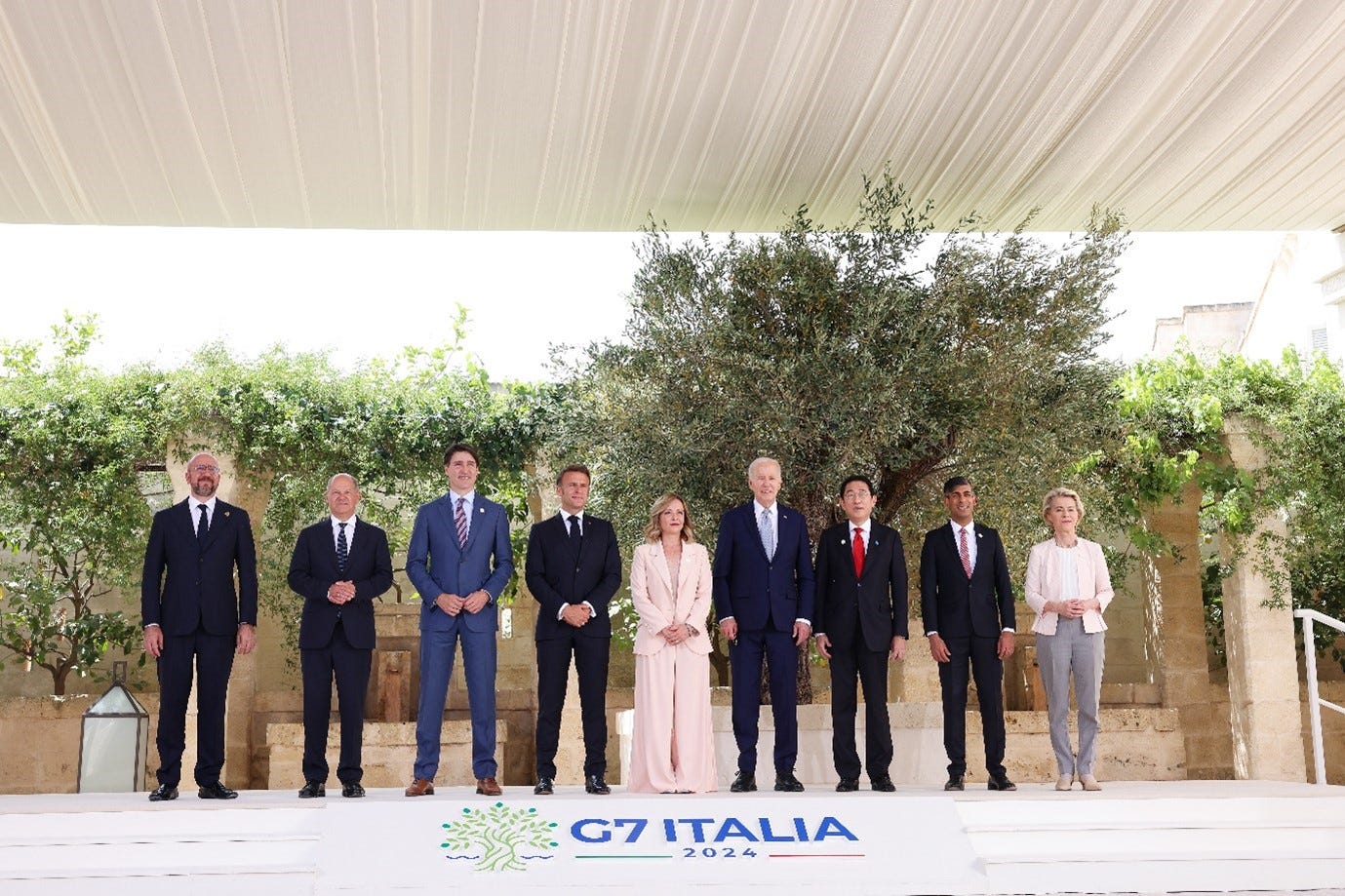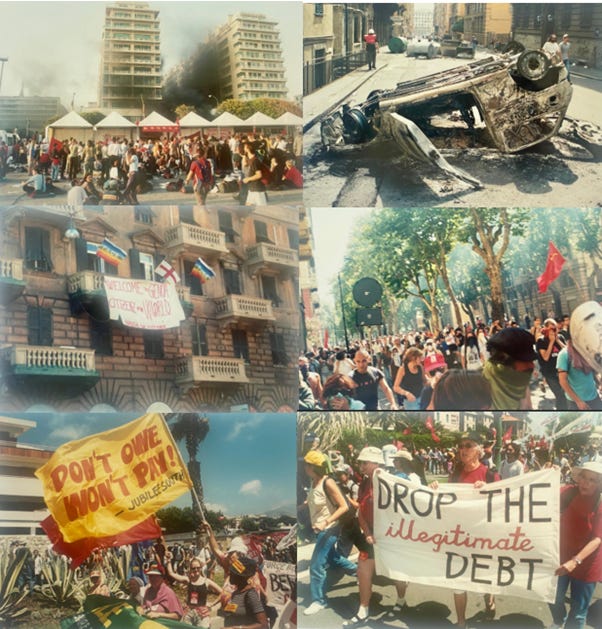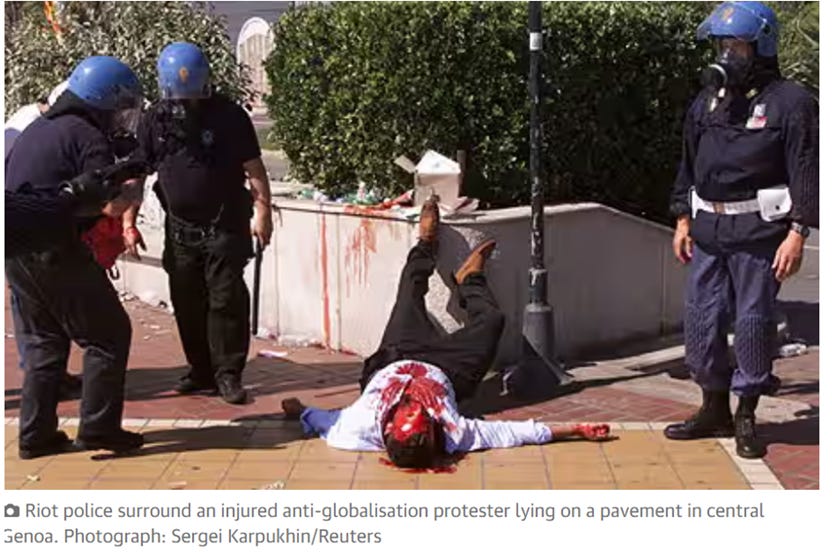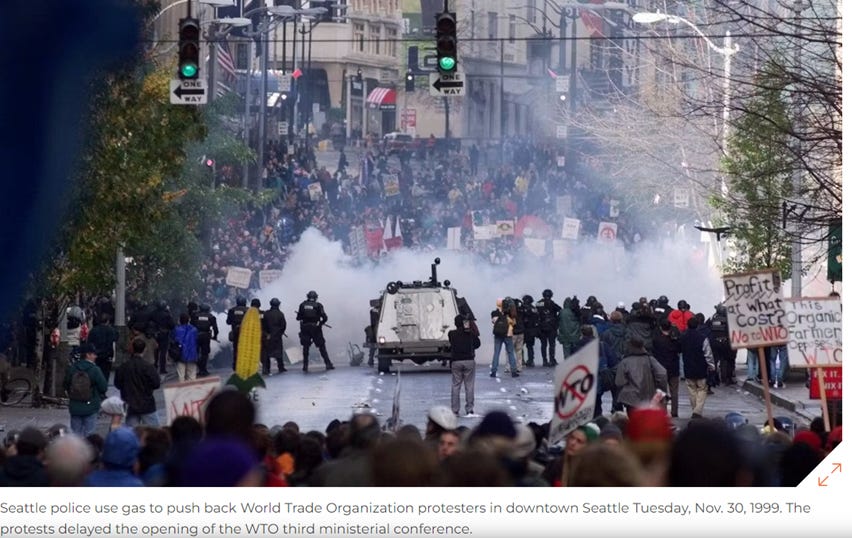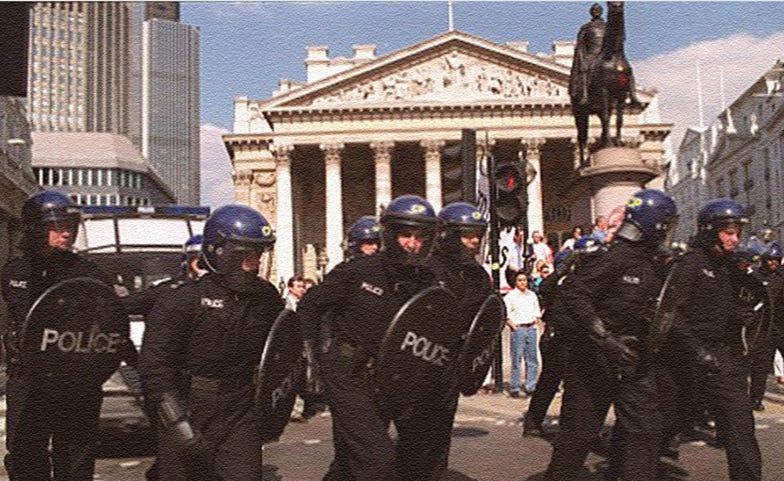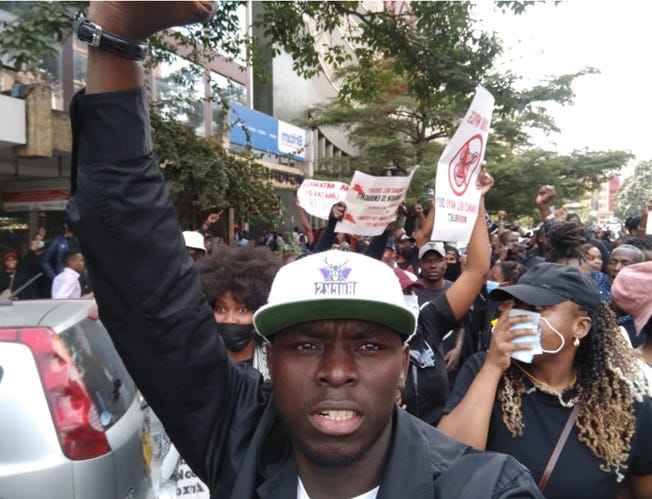I was at the G7 in Italy last week. It was all warmth, hugs and smiles as hard-right leader Giorgia Meloni welcomed her peers. It was nauseating, if I am honest. Since she became prime minister of Italy, Meloni has been pretty much welcomed by the political mainstream. She has been careful to present a very moderate face to the world, but there is no disputing that her party and her politics can be directly linked back to fascism and the darkest days of Italian history, and indeed world history.
There were some protests to mark the G7, but nothing really big. This was light-years away from when the G8 was in Italy in 2001, in the port city of Genoa (Russia was included then, hence the G8, not G7). Genoa saw perhaps the biggest single mobilisation at a G8 summit. Over a quarter of a million people peacefully marched on the Saturday.
The Bloody Battle of Genoa
I wasn’t in Genoa, but many friends and comrades were. My good friend Kjetil from Norway was there, campaigning on debt. This was before smart phones, but he kindly dug out some pictures he took at the time. People came from all over Europe and the rest of the world. It was very broad movement, from church groups to anarchists, united in an opposition to unfettered globalisation and neoliberalism.
The protests in Genoa were met with extreme violence by the Italian police which left one activist dead, and many more with lifelong injuries. For Kjetil, who was with elderly debt activists from Norway, and for many other peaceful protesters, the experience of being tear gassed, of being beaten by police, was really scary. UK journalist, Mark Covell was among the many attacked in one notorious event when riot police invaded the hostel where activists were staying as people prepared to go to bed. In terrible scenes, Mark was one of many beaten senseless by the police, with multiple broken ribs and bones and a damaged spine.
The leader of Italy then was Silvio Berlusconi, whose popularity at the time felt inexplicable, but in retrospect he was a kind of proto—Trump, and indeed a blueprint for so many leaders today. Genoa itself is a famous city for the Italian left historically. He decided this was the moment to smash the left in Italy, and in so doing he had the explicit support of other G8 leaders.
Globalised resistance.
The protests in Genoa were part of a worldwide rebellion against globalisation. Perhaps the most famous was in Seattle, against the World Trade Organisation (WTO), but there were riots and protests in Gothenburg, Quebec, Prague and all over the world. As well as the G8, protests focused on free trade negotiations, and the meetings of the World Bank and IMF. Kjetil remembers that even a relatively low-level meeting chaired by the World Bank chief economist in Oslo attracted 10,000 protesters.
I attended a few of those marches, although I was living in Malawi for a lot of that time. I did join one ‘carnival against Capital’ in London in 1999. There were riots and the police penned thousands of protesters in for hours on a bridge over the Thames. I remember arguing with an anarchist who had painted, in huge letters, ‘Disorganise!’ on the wall of the Bank of England. He was adamant that we would overcome the forces of global Capital through the sheer power of our diversity and disorganisation. I wasn’t convinced then and I am not now.
The forgotten fight
These many protests and this movement, for those of my generation, were formative. Yet I was surprised when I caucused my younger friends and colleagues in preparing this blog, just how few knew anything at all about Genoa and this moment. I was introducing one old ally recently to someone, saying ‘this is X, he is an incredible campaigner, he was there in Genoa’ -to which my young radical colleague said, ‘how wonderful- was he there on holiday?’.
I had just assumed this was all part of our common knowledge, and our common history. But it seems instead this moment has been largely forgotten and is not known about even by those fighting very much on the same issues today.
Yet these protests were not just huge, they were very successful; they helped underpin the push to see the cancellation of the debts of over 40 of the poorest countries. They led to the collapse of WTO trade talks, and the effective defenestration of the WTO. Although neoliberal trade agreements continued, the free-trade triumphalism of the late 1990’s never returned. They also led to lots of handwringing at the World Bank and IMF, and some of the most brutal edges being taken off their Structural Adjustment Programmes.
Of course, many of these changes were largely cosmetic, but that in itself was a victory; the total neoliberal evangelism of the late 1990’s never again regained its peak, and all these leaders and institutions had to instead pay lip-service to the idea of a fairer form of globalisation.
The movement came to an end dramatically with the attacks of the 11th of September 2001.
Kjetil said he believes these peaceful protests were met with such violence because global elites were genuinely scared of the popular front that was building against globalised capitalism. This was both across the political spectrum, and also joined up people’s movements in both the Global South and Global North: ‘You have to remember Max, this was before 9/11- we were basically the main enemy- and they were really threatened by us.’
We did it before, we can and must do it again.
Fast forward to today, with a fascist in a pink suit chairing the G7 with barely a ripple of protest, it is easy to be depressed.
But actually, I am not. There is nothing to stop a similar and bigger level of mobilisation. Given the anger across the world at the rising cost of living, climate breakdown and the runaway rich, there is fertile ground for organising. Just witness the protests in Nairobi this week to overturn the imposition of a 15% tax on food for example.
If we did it before, we can do it again. We can do it better this time. Let’s be spraying ‘organise’ not ‘disorganise’ for a start. The first thing we must do surely is ensure that we never forget. Instead let’s remember and learn from the past, to fight for the future.
END.
Author: Max Lawson, Head of Inequality Policy at Oxfam International and EQUALS podcast co-host. He is also the co-chair of the Global People’s Medicines Alliance.
If you want to learn more about the anti-globalisation protests from those who were there, do listen to our EQUALS podcast with Njoki Njehu and her late husband, Soren Ambrose. which we recorded a few years ago.
Always remember to share and follow us on X and connect with us on LinkedIn.


